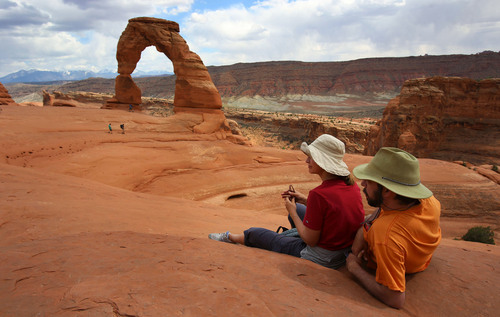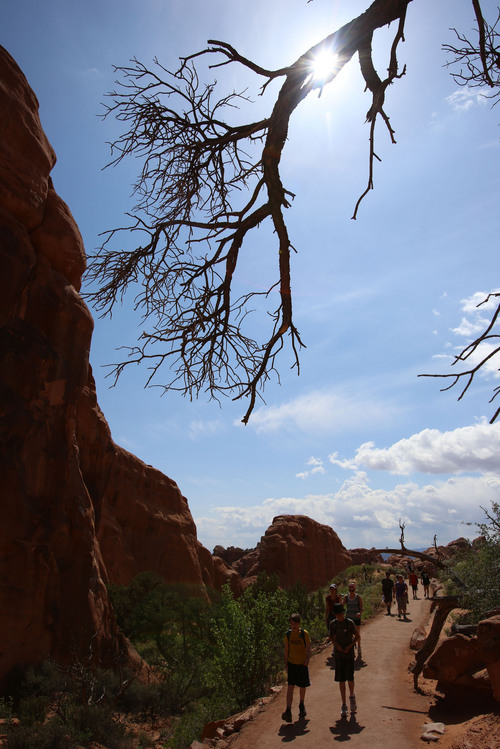This is an archived article that was published on sltrib.com in 2013, and information in the article may be outdated. It is provided only for personal research purposes and may not be reprinted.
Washington • House Republicans want the federal government to refund money that Utah and some other states paid to re-open national parks during the October government shutdown.
Beyond that, they want to create a process to allow states to temporarily step in if Congress causes another closure and, for the long term, they'd like the feds to hand over control of some public lands permanently to the states.
Thursday, the House Natural Resources subcommittee on public lands debated these demands, both small and large, in response to the recent 16-day partial shutdown that left tourists shut out of national parks across the country.
"It's imperative we have contingency plans when the government can't do its job and this is what will help with the uncertainty," said Rep. Steve Daines, R-Mont.
After the Oct. 1 shutdown, some Western states stepped up to pay to open their parks, though the Interior Department later acknowledged that it didn't have authority to refund some $2 million pumped into federal coffers. About half that money came from Utah.
"I realize the joke is on us, right?" Lt. Gov. Spencer Cox told the congressional committee, noting that Utah had expected to get the money back right away.
However, Cox said, the negotiations were amicable between states and Interior and "we certainly hope that continues."
Utah Sens. Orrin Hatch and Mike Lee have signed on to an amendment to a Defense Department spending bill that would also order that states be reimbursed for opening the parks, though it's unclear whether the Senate will take up the measure.
Daines' House legislation would authorize reimbursements to the states while Rep. Chris Stewart, R-Utah, is pushing another bill that would direct the Interior Department to ready agreements with states so that budget impasses in the future wouldn't shutter parks and cause economic harm to the communities and businesses surrounding them.
Rep. Don Young, R-Alaska, also pitched a measure that would streamline the process for a state to take over management of federal lands, including national parks and forests and Bureau of Land Management areas, without the states actually owning the acreage. The trio of bills prompted concern from Democrats who charged that Republicans were trying to use the shutdown to further snatch local control of national treasures. Or worse yet, were suggesting that the federal government was destined to close.
"I feel like we're bringing Doomsday Preppers to the Hill," said Rep. Raul Grijalva, D-Ariz., referring to the popular National Geographic television show that features people preparing for the end of the world.
Stewart countered that there was nothing wrong with planning ahead and it seemed only practical to put agreements in place to keep parks open in case of another shutdown.
"I know that some have called this a doomsday scenario, but I think it's wise for us to prepare," Stewart said.
The subcommittee did not vote on any legislation Thursday, though the Interior Department objected to the bills that would mandate agreements be in place with the states and to the idea of states taking over management of federal lands.
"The lands managed by these [federal] bureaus belong to all Americans, not just the residents of the states in which they are located," testified C. Bruce Sheaffer, the comptroller of the National Park Service.
Grajalva added that he appreciated that Republicans have come to like their national parks but that it's unfair to single them out to keep running in a shutdown and not programs like Head Start or Meals on Wheels or cancer treatments or military contracts.
"If we want to be consistent," Grijalva said, Congress should "tie states to continuing funding in all areas affected by the shutdown."





